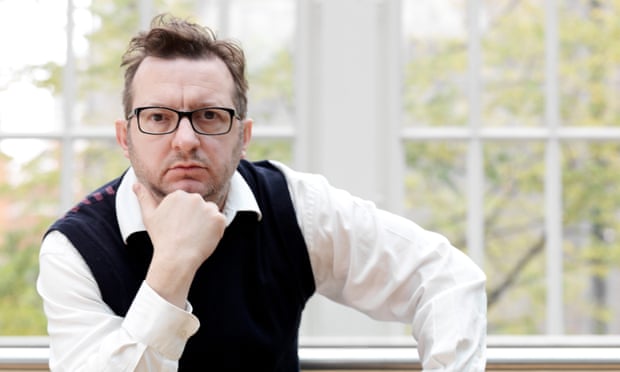‘Apocalyptic nightmares fuel my music’
Mark-Anthony Turnage
Tell us about your Proms piece … I wrote Time Flies three years ago, in what seems a more innocent era. It was a reaction to getting older. Having grown up in the 1960s, I have, like many people, a nuclear anxiety, which in my case was bolstered by fear of the armageddon from my Pentecostal upbringing. Being told every day of your childhood you were going to burn for eternity unless you repented your sinful ways tends to breed fear and a deep dread. I still have apocalyptic nightmares. They fuel my music, which tends to be pretty pessimistic. Add the climate crisis into the mix and I don’t see much of a future for our children unless they all rise up and defeat the toxic masculinity and corruption that’s destroying our world. But I would never presume to tell a listener what to get out of my music. I would just be grateful they were listening at all. Sadly, I’m not convinced any of us will be around for much longer to hear it.
Why do we need composers? If you’d asked me three years ago, I would have been unfailingly optimistic and said we are essential. After a crushing pandemic and Russia’s invasion of Ukraine, I’m not so sure. I write music because I have to. It’s an obsession, it starts as a private act. I suppose I need to hear it as I love working with musicians – and I need to earn a living. I also need to stave off depression and utter despair.
The UK premiere of Mark-Anthony Turnage’s Time Flies is on 15 August (Prom 39)
‘From death to shades of red, art just needs to be honest’
Jennifer Walshe
Tell us about your Proms piece … The Site of an Investigation was written in 2018. It seems like a couple of decades ago now, but 2018 had a lot in common with 2022: the climate emergency, precarity, Mars exploration, AI. For me, it was also a year marked by loss – my friend Stephen Swift passed away that year. The piece is dedicated to him.
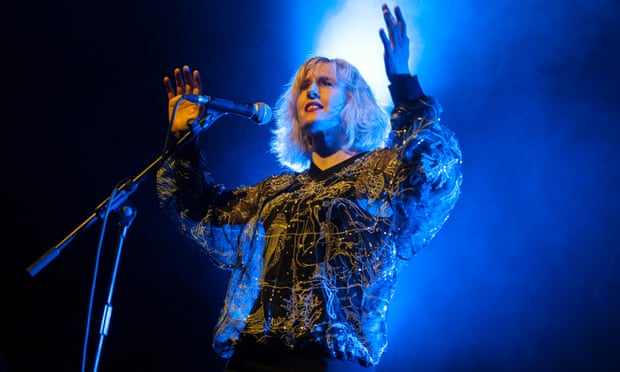
Why do we need composers? I believe art is a way of being present in the world, and will continue to be for as long as the Earth is circling the Sun. That’s not to say art has to be “about” anything: it just needs to be honest, whether that’s talking about death or immersing us in a shade of red so specific it seems to open up a portal to another dimension. Ultimately, we enter into a union, whether with the work, the artist, or something else – whether we are welcomed or confused, we know we’re not alone.
The Site of an Investigation has its London premiere on 28 July (Prom 17)
‘I undo dense, solid knots – and release a living thing’
Thomas Adès
Tell us about your Proms piece … I composed these four Märchentänze (“dances from fairytale”) in 2020, originally for violin and piano, then a year later made this orchestral version. The first movement is a fantasy on the folk song Two Magicians, immortalised by Steeleye Span, about the immemorial generative dance of the sexes. A hushed movement follows, the chant-like tune presented as a round. The third movement, A Skylark for Jane, is an outpouring of birdsong, each individual orchestra member freely echoing the soloist to create an “exaltation” of skylarks. The final dance begins with an energetic elfin theme, and grows into a writhing dance. Many themes grapple, twining around each other like otters, towards a decisive conclusion.
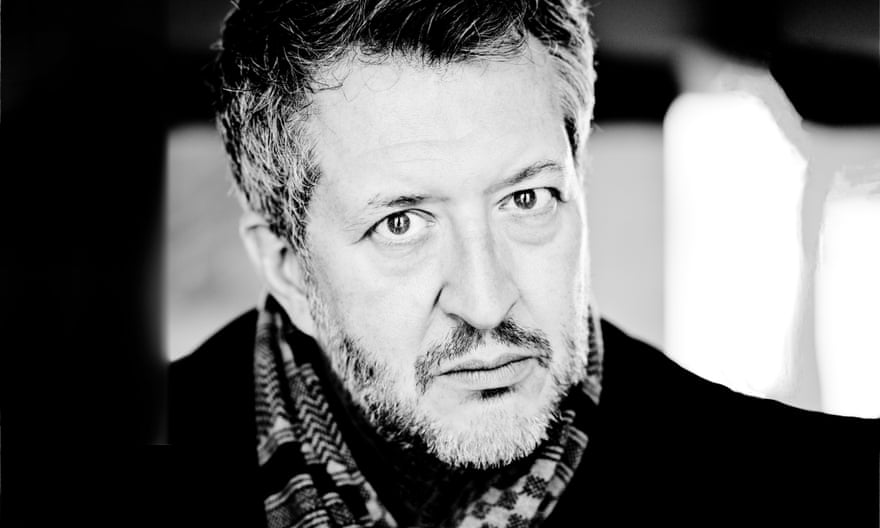
Why do we need composers? It’s a compulsion. I have no choice. There is an image in my head which to me is completely real. There are obstacles in my way, dense solid knots, like ganglia; they block my path, infinitely heavy, and I have to disentangle them to move forward. They consist of everything, every sound, all at once, compacted into an instant. They are dangerous, suffocating masses. While they are in the way, I can’t breathe. By undoing these knots, I release a living thing. I have to perform this translation in the best, most specific way possible in order to set the piece free. That’s the work.
In doing this I aim for truth, to find and lead out the essence of what is there. I’m most interested in timelessness, not in the temporary and ephemeral. Obviously I can’t write for a particular type of person: that’s futile. Opinions have no bearing: the knots don’t care.
This process of liberation is as vital to me as breathing, and must be just as free, as unlegislated. I don’t want to fall into today’s commonest problem of stalling at the merely anecdotal. I have to transcend, transfer, transform, transport.
The UK premiere of Thomas Adès’s Märchentänze is on 26 August (Prom 52)
‘A velvet-lined theatre can be an arena for revolution’
Missy Mazzoli
Tell us about your Proms piece … My new violin concerto, Procession, was inspired by medieval healing rites developed during pandemics: spells, incantations, processions and ecstatic dances. As we emerge from the latest pandemic into a bewildering new era, the concert experience can itself play the role of these restorative rituals.
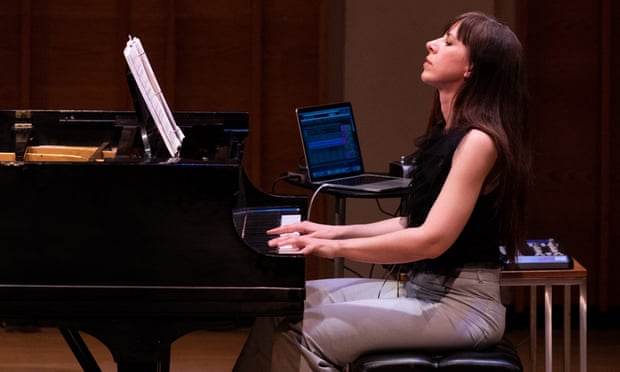
Why do we need composers? With each work, I endeavour to provide a new language for thoughts and feelings we suppress in everyday life, a recognition of the vulnerable and terrifying parts of ourselves. I also want to provide space in which we can process the overwhelming nature of the world. In this sense, a quiet gallery, the circumference of our headphones or a velvet-lined theatre can become arenas for revolutionary communion and connection.
The European premiere of Missy Mazzoli’s Violin Concerto is on 14 August (Prom 38)
Bees, birdsong and the lessons of Tam O’Shanter
Sally Beamish
Tell us about your Proms piece … Hive depicts the dramatic life of a beehive over a year. I hope the piece stands up musically, even if the listener is not aware of the “story”. I hope the sounds of bees and birdsong are pretty apparent.
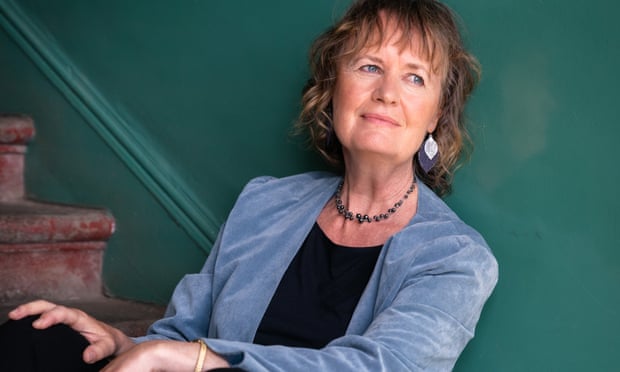
Why do you compose? I was very young when I first heard Malcolm Arnold’s Tam O’Shanter. It showed me that music could tell a story. It is a universal language that can break down barriers as well as offering a way to process and come to terms with the deepest feelings, whether painful or joyful.
The world premiere of Sally Beamish’s Hive is on 21 July (Prom 9)
‘Playing in brass bands helped me deal with Tourette’s’
Gavin Higgins
Tell us about your Proms piece … My first musical experiences were in my local brass band and my Proms piece, Concerto Grosso, is a love letter to that music and those people. As well as providing me with a thorough musical education, performing in brass bands became a way of dealing with my Tourette syndrome and OCD when I was a child. My piece is a celebration of music made by the working classes and that is at the very heart of the British musical landscape.
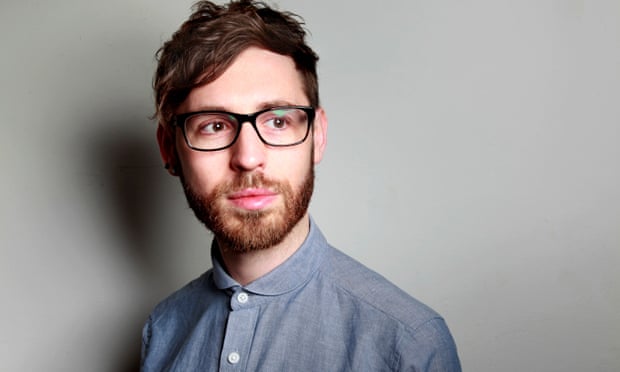
Why do you compose? Hearing The Rite of Spring was a catalyst. I knew the music because I’d been obsessed by the dinosaurs in Disney’s Fantasia where it was featured. Years later, I sneaked out of school to watch an afternoon performance of the ballet. I was amazed at how the wind, brass and percussion seemed to be driving the music, the sound of the orchestra somehow coming from the back of the stage. It left a strong impression and continues to influence how I approach orchestral music.
The world premiere of Gavin Higgins’ Concerto Grosso for Brass Band and Orchestra is on 8 August (Prom 30)
Uncanny visions of a daughter in paradise
Matthew Kaner
Tell us about your Proms piece … My new piece sets extracts from Simon Armitage’s stunning translation of the English medieval poem Pearl. It tells the story of a man who, in mourning the death of a young child, revisits the place where he lost her, falls asleep and has a vision of her in the afterlife. The music also depicts this narrative journey: the protagonist’s earthly mourning, his dream vision and the uncanny yet moving appearance of his daughter in paradise, surrounded by the heavenly choir of all those who have also left this world. It’s an explicitly religious text but I’ve tried to steer the piece towards a universal message of grief and redemption.
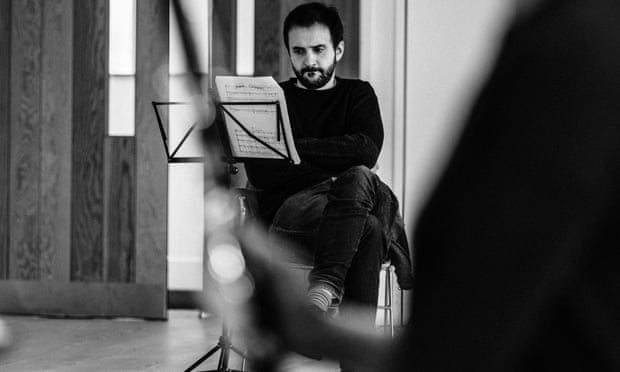
Why do we need composers? For the same reasons we need writers, artists, poets and performers. Classical music, like all art forms, captures the concerns and feelings of those living today, just as it did so eloquently for bygone eras.
The world premiere of Matthew Kaner’s Pearl is on 10 August (Prom 33)
‘Lady Super Spy Adventurer is an imaginary cartoon’
Errollyn Wallen
Tell us about your Proms piece … My work is a song for mezzo soprano and piano called Lady Super Spy Adventurer. I had an imaginary cartoon character in mind. As is so often the case, I don’t know fully what my works are about until well into the process of composing. In the case of my songs, the words and music chase each other and my imagination takes flight. Even after a work is completed it can continue to have a life and meaning beyond my original intention. There can be more than one meaning of a work both for the composer and the listener.
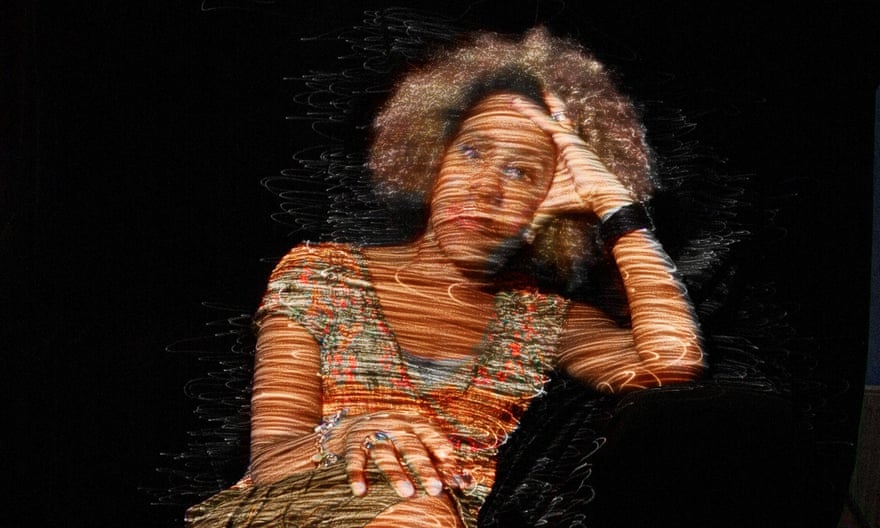
Why do we need composers? Composers often hear things in sound that nobody else notices. I am intrigued by the raw building blocks of music — a chord or the interval between two notes. I grew up listening to all kinds of music and I like to think that my compositions reflect a wealth of expression and cultural references. I hope that listeners can sense the enjoyment I experience while composing.
The world premiere of Errollyn Wallen’s Lady Super Spy Adventurer is at Proms@Birmingham on 29 August (1pm)
Tune in to the dawn of broadcasting
James B Wilson
Tell us about your Proms piece … It’s called 1922 and is about the first BBC broadcast, 100 years ago. Now, with the universality of technology and social media, we are part of an all-encompassing broadcasting culture. The piece contemplates that initial moment of creation and the exponential growth of broadcasting since. The music has an exuberance: at its heart, it is a celebration.
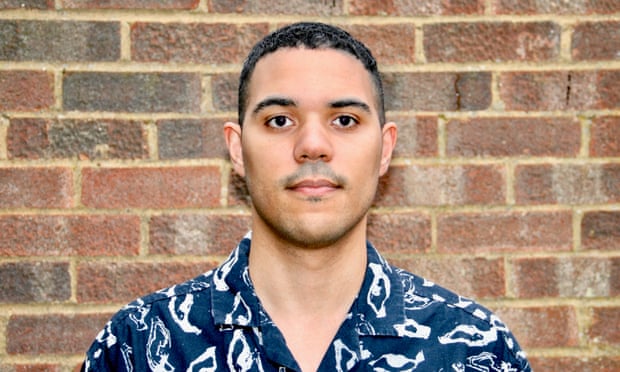
Why do we need composers? Music is an essential part of what it means to be a human being. It is communication, emotion. Living composers tell the stories of our time. I don’t live in a vacuum and neither does my music.
The world premiere of James B Wilson’s 1922 is on the Last Night of the Proms, 10 September (Prom 72)
The playlist piano concerto
Betsy Jolas
Tell us about your Proms piece … My piano concerto, called bTunes, reflects the way most people listen to music today – through playlists. But that’s just one of its numerous aspects.
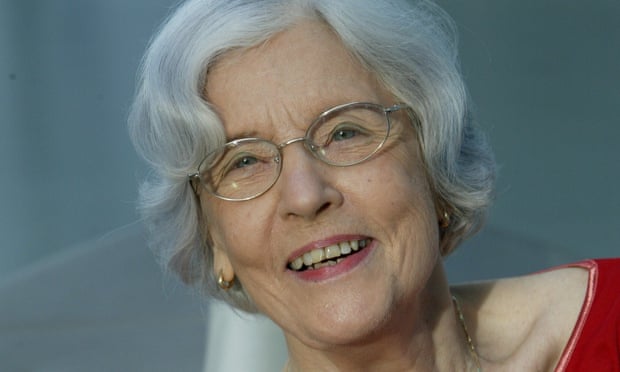
Why do we need composers? Composers keep the world of music moving and listeners connected to their time. My music is intended for people who are willing to take the time to listen to it actively.
The world premiere of Betsy Jolas’s bTunes is on 5 September (Prom 66)
‘Kate Bush showed me it was OK to be unconventional’
Nicole Lizée
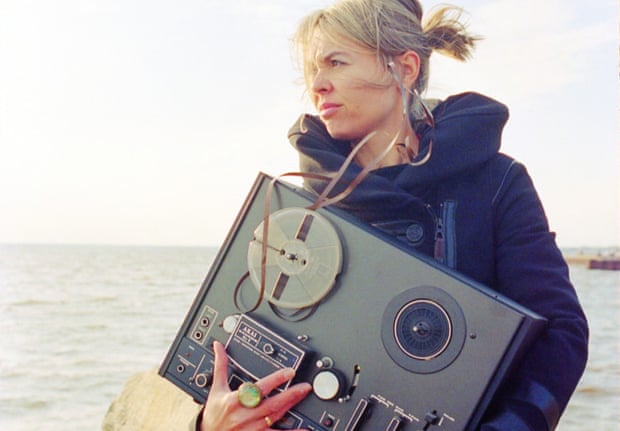
Why do we need composers? I can best answer that by talking about the musician who inspires me most: Kate Bush. Growing up, her music was a reassurance that it was OK to be creative in unconventional ways, and to be unabashedly in control of many facets of art-making: production, music video direction, set and costume design. She epitomised artistic freedom.
The European premiere of Nicole Lizée’s Blurr is the Colour of My True Love’s Eyes is on 29 July (Prom 18)
‘I wanted to celebrate the Queen’
Cheryl Frances-Hoad
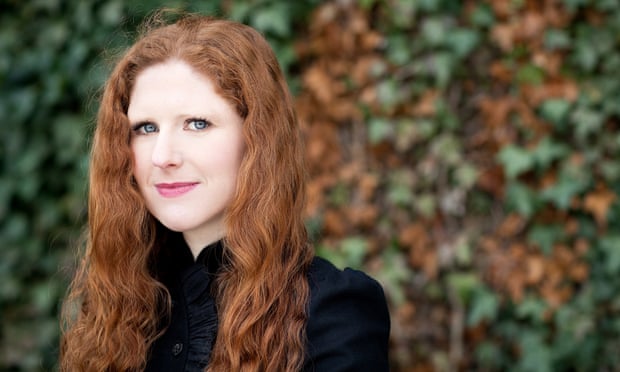
Tell us about your Proms piece … My piece for the Platinum Jubilee Prom celebrates the 70 years of Queen Elizabeth II’s reign, and is inspired by lots of things: William Byrd’s music, a book about the science of memory formation, Queen Elizabeth II’s own words, a beautiful quote by AS Byatt that influenced the orchestration, ideas about devotion that affected the length of a very long held note, and lots of other ideas and images that coloured everything from the harmony to the dynamics. I wanted to celebrate the many facets of a life of devoted service, create a connection with music written for Queen Elizabeth I over 400 years ago (while adding a new musical and philosophical perspective) and, most importantly, include everyone, from the performers to those watching on the telly at home, in a dignified yet joyful and glorious musical tribute to our longest reigning monarch.
Cheryl Frances-Hoad’s Your Servant, Elizabeth is on 22 July (Prom 10)

